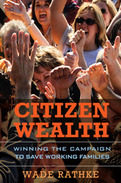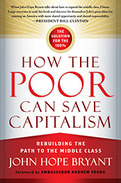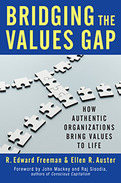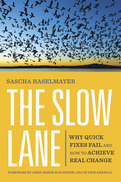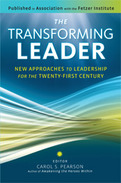2009
• By the founder of ACORN, the nation’s largest grassroots community organization of low- and moderate-income people
• Goes beyond piecemeal solutions to present a holistic strategy for helping working people establish a solid economic foundation
• Draws on lessons learned from Rathke’s 40 years in the field
America’s safety net is torn and tattered. Income inequality continues to grow—the gap between rich and poor has expanded fivefold in the last 25 years. For millions of working families achieving basic middle class comforts has begun to seem as distant a dream as winning the lottery. What is needed, and what veteran organizer and ACORN founder Wade Rathke provides in this hard-hitting new book, is a comprehensive grassroots strategy to create what he calls citizen wealth: an enduring foundation on which working people can build a future that extends beyond paying next month’s rent.
Rathke shares breakthrough strategies that have enabled ACORN and other organizations help people secure the basics of citizen wealth—a house and a decent income—offering from-the-trenches advice on mounting successful living wage campaigns, battling unscrupulous and predatory lending practices, and developing new forms of worker organizations to protect wages and benefits. The anti-poverty programs still out there can provide critical support for citizen wealth-building efforts, but they’re woefully underutilized. Rathke shows how to cut through government indifference and bureaucratic obstacles to provide those in need with access to these vital resources.
But community organizations can’t do it alone. Rathke describes ACORN partnerships with HSBC Bank and H & R Block that helped these businesses see building citizen wealth as a new market opportunity—a win for them and for the people they once exploited. And he looks at other examples of strange bedfellows in the fight for citizen wealth, including Citibank, once the target of massive protests by ACORN and now, working with them, a major investor in working class communities.
“We need to create a national economic and political consensus that increasing family income, wealth and assets is not `welfare’ or an entitlement ‘give-away” program but an investment in the public good and well-being.” Rathke writes. Based on forty years of hard-won experience, Wade Rathke offers a new blueprint for helping millions to achieve the American Dream.
Raised in poverty-stricken, gang-infested South Central Los Angeles, Bryant saw firsthand how our institutions have abandoned the poor. He details how business loans, home loans, and financial investments have vanished from their communities. After decades of deprivation, the poor lack bank accounts, decent credit scores, and any real firsthand experience of how a healthy free enterprise system functions.
Bryant radically redefines the meaning of poverty and wealth. (It's not just a question of finances; it's values too.) He exposes why attempts to aid the poor so far have fallen short and offers a way forward: the HOPE Plan, a series of straightforward, actionable steps to build financial literacy and expand opportunity so that the poor can join the middle class.
Fully 70 percent of the American economy is driven by consumer spending, but more and more people have too much month at the end of their money. John Hope Bryant aspires to “expand the philosophy of free enterprise to include all of God's children” and create a thriving economy that works not just for the 1 percent or even the 99 percent but for the 100 percent. This is a free enterprise approach to solving the problem of poverty and raising up a new America.
Business has a values problem. It's not just spectacular public scandals like Enron (which, incidentally, had a great corporate values statement). Many companies fail to live up to the standards they set for themselves, alienating the public and leaving employees cynical and disengaged—resulting in lower productivity, less innovation, and sometimes outright corruption.
The reason, argue top scholars and consultants Edward Freeman and Ellen Auster, is that all too often values are handed down from on high, with little employee input, discussion, or connection to the challenges and opportunities facing the organization. Although the words may be well-intentioned, they aren't reflected in the everyday practices, policies, and processes of the organization. This practically invites disconnects between intention and reality.
To bridge this gap between the “talk” and the “walk”, Freeman and Auster provide a process through which organizations can collectively surface deeply held values that truly resonate with everyone, from top to bottom. Their Values Through Conversation (VTC) process focuses on four key types of values conversations: introspective (reflecting on ourselves and how we do things in the organization), historical (exploring our understanding of our past and how it impacts us), connectedness (creating a strong community where we work well together), and aspirational (sharing our hopes and dreams).
By developing values through discussions—casual or formal, one-on-one or in groups—VTC ensures that values are dynamic and evolving, not static words on a wall or a website. Freeman and Auster offer advice, real-world examples, and sample questions to help you create values that are authentic and embraced because they are rooted in the lived experience of the organization.
2023
Society celebrates leaders who promise fast, easy solutions to the world's problems—but quick fixes are just mirages that fade, leaving us with the same broken systems. The truth is, effective social change happens through slow, intentional actions. The author, a globally acclaimed social entrepreneur, offers a 5-step process for taking the slow lane to change-the lane that gets you to the right place faster:
- Listening—Listen to build trust, which can change hearts and minds and allow for something new to emerge.
- Holding the urgency—Accept that even in moments of crisis you can move only at the speed of trust instead of rushing into action.
- Sharing the agency—Create an inclusive environment where everyone can lead.
- Healing democracy—Build bridges that allow marginalized people to participate.
- Maintaining curiosity—Be inspired by nontraditional sources.
Using dozens of examples—prison reform in England, urban development in Venezuela, healthcare in the Navajo Nation, early childhood education in New York, and many more—The Slow Lane shows how, by following the principles taught in this book, readers can create lasting change.
Outlines a new leadership approach tailored to the realities of the 21st Century.
No organizational leaders can succeed in today’s fast evolving and highly connected world on their own. To succeed, today’s leaders must not only optimize all their own faculties—mental sharpness, emotional depth, imagination, and creativity—but also utilize the full capacities of those around them in a collaborative and creative manner. The prestigious contributors to this volume draw on psychology, sociology, neuroscience, social networking theory, organizational change theory, myths and traditions, and actual experiences to discover how leaders today achieve transformational results. The Transforming Leader offers an overview of what transformational leadership is, how it works, and how it is evolving. In doing so it reframes the challenge of leading in today’s interdependent, unpredictable world.-
Outlines a new leadership approach tailored to the realities of the twenty-first century
-
Features chapters by such leading authors as Matthew Fox, Diana Whitney, and Alan Briskin
-
Edited and annotated by the author of the bestselling The Hero Within
The traditional model of the heroic leader single-handedly piloting the organization was always something of a myth, but it is especially unrealistic now. We live in a complex, fast-evolving, highly connected world. There is simply too much for a single person to keep track of or to address successfully. Leaders today must not only optimize all their own facultiesmind, body, and spiritthey must harvest the full capacities of those around them.
To discover what leadership models are working now, the prestigious Fetzer Institute, along with the University of Marylands School of Public Policy, and the International Leadership Association, brought together an impressive, interdisciplinary group of scholars and practitioners. The group drew on psychology, sociology, neuroscience, organizational change theory, myths and wisdom traditions, social networking theory, and the actual experiences of successful leaders to discover how leaders today achieve transformational results.
The first part of the book offers an overview of what transformational leadership is, how it works, and how it is evolving. The second part shows readers how to increase cognitive complexity, link up their conscious and unconscious minds, and lead in ways that connect mind, heart, and spirit. The third part describes ways of leading groups to harvest collective wisdom and promote coordinated performance in the service of transformational ends. The conclusion explores how transformational communication can anchor new learnings so that they become habitual.
Overall, The Transforming Leader reframes the challenge of leading in todays interdependent, unpredictable world. Its message is that if we update our thinking, enhance the quality of our being, deepen our sense of relatedness with the ecology of our natural and social worlds, and practice transformational communication, things no longer have to be so hard.
America faces huge challenges—climate change, social injustice, racist violence, economic insecurity. Journalist Sarah van Gelder suspected that there were solutions, and she went looking for them, not in the centers of power, where people are richly rewarded for their allegiance to the status quo, but off the beaten track, in rural communities, small towns, and neglected urban neighborhoods.
She bought a used pickup truck and camper and set off on a 12,000-mile journey through eighteen states, dozens of cities and towns, and five Indian reservations. From the ranches of Montana to the coalfields of Kentucky to the urban cores of Chicago and Detroit, van Gelder discovered people and communities who are remaking America from the ground up. Join her as she meets the quirky and the committed, the local heroes and the healers who, under the mass media's radar, are getting stuff done. The common thread running through their work was best summed up by a phrase she saw on a mural in Newark: “We the People LOVE This Place.” That connection we each have to our physical and ecological place, and to our human community, is where we find our power and our best hopes for a new America.


